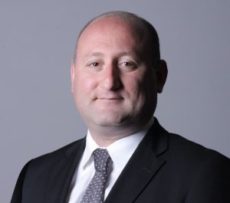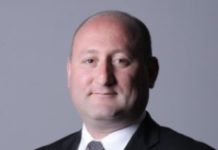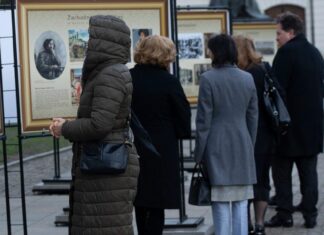CARSON, Calif. — On July 19, Armenian Assembly of America Board of Trustees Member Lisa Kalustian and Western Region Director Mihran Toumajan participated in a seminar hosted by the Los Angeles chapter of Facing History and Ourselves (FHAO), in partnership with the Dominguez Hills International Studies Project (DHISP), entitled “The Armenian Genocide and International Justice.” The workshop was designed for high school teachers to include the Armenian Genocide in their curricula.
Under the leadership and professional instruction of FHAO Associate Program Director Mary Robinson Hendra, teachers of History, Social Studies, Government/Civics, Human Rights, and English Language Arts were able to learn about the “systematic murder of over one million Armenians, and the role of justice and judgment in the aftermath of such an atrocity.” The educators, in turn, will share their acquired knowledge and teaching techniques on the Armenian Genocide with high school students throughout southern California.
“Thanks to the generous invitation of FHAO Los Angeles Director Liz Vogel and the meticulously prepared presentations by Mary Robinson Hendra, Mihran and I were pleased to witness the impactful and grassroots-oriented work conducted by FHAO, aimed at educating educators on past and present cases of genocide, atrocity crimes, prejudice, and bigotry while imparting effective strategies in preventing and combating the recurrence of such horrors in the age of digital media,” stated Kalustian.
The three-day seminar, which took place between July 18-20, was held on the California State University, Dominguez Hills campus in Carson, California.
The first day of the seminar featured a video welcome by Dr. Taner Akçam, the Robert Aram, Marianne Kaloosdian and Stephen and Marian Mugar Chair in Armenian Genocide Studies at Clark University, as well as an historical overview of the Armenian Genocide by Dr. Richard Hovannisian, Armenian Educational Foundation Professor Emeritus of Modern Armenian History at the University of California, Los Angeles. Subjects covered during the first day of the workshop include topics on identity and history, the significance of denialist memory, the meaning of justice, and the development of an “us and them” political dynamic in the Ottoman Turkish Empire, that ultimately resulted into genocide.
The second day of the seminar had innovative and interactive sessions such as the “Rise of the Young Turks,” “Survivor Voices,” and a range of responses to the Armenian Genocide by executioners, eyewitnesses, and righteous rescuers.








